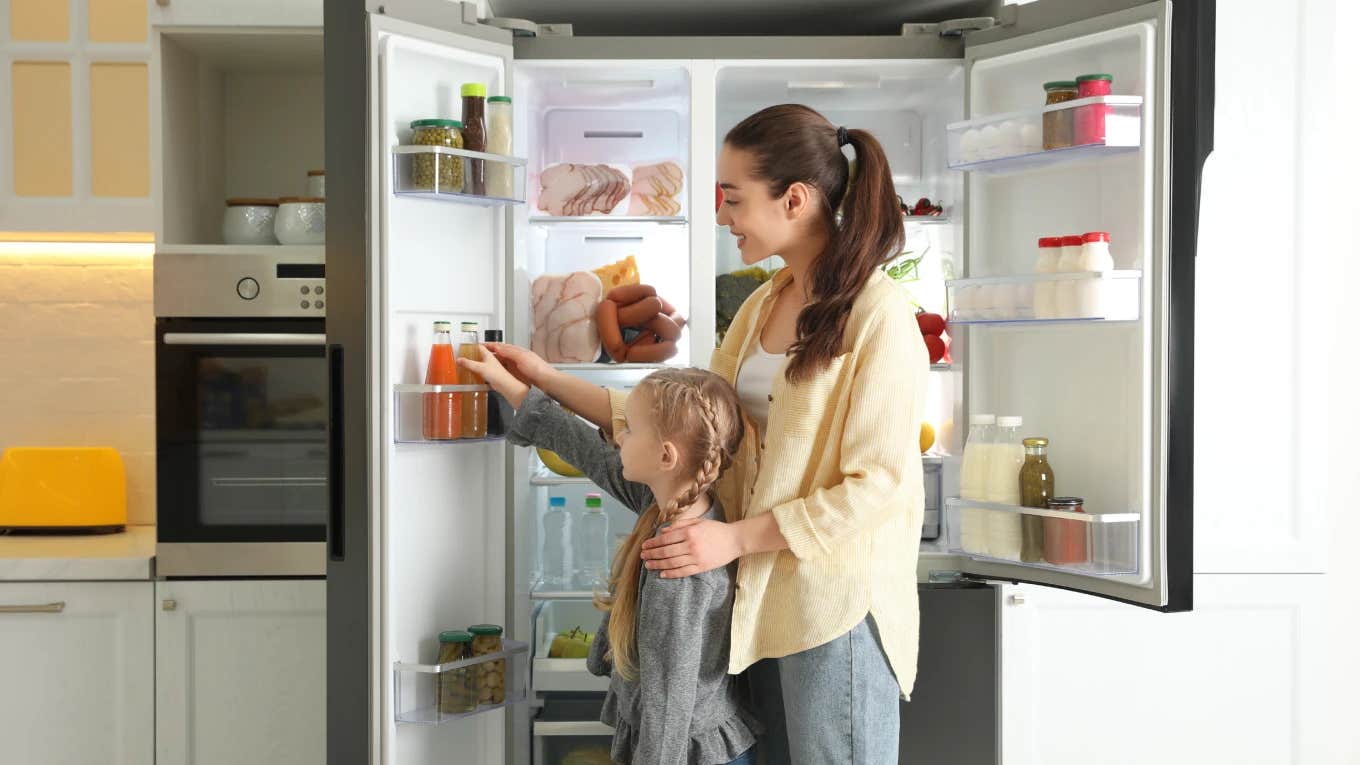Proud 'Gummy Bear Mom' Says She Has No Problem Keeping A Fridge Stocked With Snacks Instead Of Limiting What Her Kids Eat
She's the opposite of an "almond mom."
 New Africa | Shutterstock
New Africa | Shutterstock It's important that parents instill a healthy relationship with food in their children. They must teach their kids the value of healthy and balanced meals but avoid labeling food as "good" or "bad."
It's a complicated balance to achieve, but an important one, as around 28.8 million Americans will have an eating disorder in their lifetime, according to a 2020 report, and many more will engage in unhealthy eating habits. Harmful relationships with food can manifest in children as young as 5.
In a TikTok, Justyna McGuire, a mom and content creator, proudly claimed that she will never restrict her kids with the kinds of snacks they eat, likely for this very reason.
The woman described herself as a proud 'gummy bear mom' who has no problem keeping a fridge stocked with snacks.
McGuire explained that a "gummy bear mom" is the complete opposite of an "almond mom," which she described as the type of parent who "eats a couple of almonds for a meal" and is surprised when you're hungry. Almond moms generally buy into diet culture and care deeply about appearance.
Lauren Smith, a registered dietitian, described almond moms as "any person who really struggles with their own relationship with food and also puts their own struggles onto others,” often by asking questions like “Are you sure you wanna eat that? Do you really wanna go back for seconds? Are you sure you're not just thirsty?”
Those types of comments, Smith pointed out, “can cause you to question your own internal cues” which is when your "relationship with food can become really wacky and hard."
Gummy bear moms fall on the opposite side of the spectrum.
"A gummy bear mom is the mom who does the Costco run, pantry is stocked, fridge is stocked," McGuire explained. "If there's a new trending shake, she wants to try it. And that's definitely me."
McGuire admitted that her relationship with food came from her own mom, who is a "gummy bear mom" as well. Whenever she goes to her mom's house, there is always a variety of snacks, cake, fruit, and other foods to enjoy.
McGuire's mother-in-law, however, is an almond mom.
"She could never finish a meal," McGuire said. "She'll have like two pieces of shredded wheat and [be] stuffed."
This is proof that our parents' eating habits really affect us, especially when we become adults and eventually have kids of our own. It's important to do what you can to help your children develop a healthy relationship with food.
A large number of children suffer from some sort of eating disorder.
More than 1 in 5 kids and adolescents around the world show signs of disordered eating, according to a new study. The study highlights a serious public health issue that often goes underreported and underrecognized, according to the meta-analysis published in the journal JAMA Pediatrics.
Researchers reviewed and analyzed 32 studies from 16 countries and found that 22% of children and adolescents showed disordered eating behaviors. Those numbers were higher among girls, older adolescents, and those with a higher body mass index, or BMI.
 KlingSup | Shutterstock
KlingSup | Shutterstock
Kids are perceptive and pick up on little things, like the relationship you have with food, so parents must make a conscious effort to help their children develop a healthy relationship with eating. Isabel Reckson, a registered dietitian and education specialist in Pediatrics at Weill Cornell Medicine, advised parents on how to do so.
“Labeling foods as healthy vs. unhealthy can teach children that they’re doing something wrong when they eat the ‘bad’ ones,” she explained. “Best to refrain from talking about your diet or your dissatisfaction with your body or weight in front of your children."
She also advised parents to avoid stigmatizing entire food groups like carbs or fats, demonstrate healthy eating habits themselves, and allow for snacks — just as any good gummy bear mom does.
Nia Tipton is a Chicago-based entertainment, news, and lifestyle writer whose work delves into modern-day issues and experiences.

